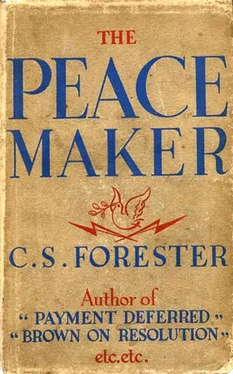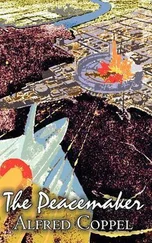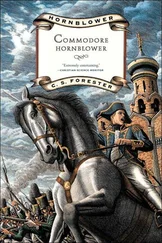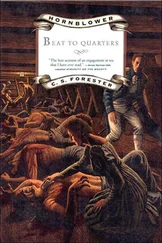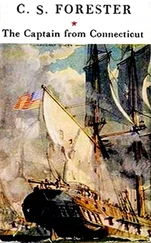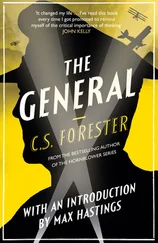When the class was finished Mr. Holliday considered it his duty to go in and report to his senior, Dr. Pethwick, upon the latest misbehaviour of the boys. But Dr. Pethwick did not receive the news in a sensible fashion—indeed, Holliday had no hope that he would. He was in the little advanced physics laboratory, which had gradually become his own owing to the dearth of boys needing instruction in advanced physics.
Later on Mr. Holliday made many and desperate efforts to recall just what apparatus there was upon the bench engaging his attention when Holiday walked in, but he never succeeded. The big electrometer was there, Holliday noticed, and there was a lead from the power plug in the wall to some simple make-and-break which was buzzing cheerfully away surrounded by various other instruments.
But of those other instruments Mr. Holliday, later on, could only recall a vague picture of a big red magnet and something which might have been a glowing radio valve or even a vacuum tube, so casual had been Mr. Holliday's glance as a result of the indignation which burned and seethed within him.
"There's been trouble again in the junior lab," said Mr. Holliday.
Dr. Pethwick merely turned his lean white face towards him and did not hear him.
"Some of these young devils have demagnetized every blessed magnet in the magnet drawer," expanded Mr. Holliday.
That news certainly seemed to have some effect upon Dr. Pethwick. He switched off the current so that the buzz of the make-and-break stopped abruptly, and came round the bench to Holliday. His hands flapped. Mr. Holliday, recounting the interview much later, described him as looking like a new-caught fish flapping on the bank.
"Every blessed one," said Holliday, referring still to the magnets. "And the compass needles as well. I bet it's Horne and Hawkins and that crowd."
"D-do you think so?" quavered Dr. Pethwick.
"It's two months since the last of their silly practical jokes," fumed Holliday. "They were just about due for another. But they've bitten off more than they can chew this time. I wouldn't have a bottom like the one young Horne is going to have tomorrow for something."
Dr. Pethwick's eyebrows rose. Holliday attributed the gesture to his own outspokenness regarding young Ho4ne's bottom—no one ever mentioned bottoms to Dr. Pethwick—but he stood his ground stoutly.
"He's jolly well earned it," he said, "and he's going to get what's coming to him."
Dr. Pethwick seemed more embarrassed than ever.
"I—I shouldn't do anything about it yet—" he began. "Perhaps—"
"But I must," protested Holliday. "These things have to be jumped on at once. Hard."
Then Mr. Holliday attributed Dr. Pethwick's hesitancy to fear of what Mr. Laxton would say regarding yet another disciplinary row on the Science side.
"Oh, don't you worry," he went on, hotly. "We won't have any song and dance about it. I'll have young Horne and Hawkins up in my classroom this evening and get the truth out of 'em. I'll give 'em six each and that will be the end of that."
"But—" said Dr. Pethwick. "But—"
These un-Napoleonic "buts," this dilatoriness, set a seal on Holliday's wrath. He issued a proclamation of independent action.
"Anyway," he said, "it happened in my class, and it's my business to deal with it. And I'm going to."
And with that he flung out of the advanced physics laboratory, leaving Dr. Pethwick bending over his experimental bench with a worried look on his face. Dr. Pethwick straightened his back, and eyed his apparatus again. He opened the door leading through to the senior laboratory, and looked at the cupboard which held the drawer of bar magnets. He noted its position.
Standing in the doorway he looked back and forward, noting the relative positions of his emitter, the magnet he was experimenting with, and the magnet cupboard. There could be no doubt now that the Klein-Pethwick Diamagnetic Effect was very marked and powerful. It set him wondering whether anywhere further along that straight line—beyond the walls of the school, perhaps, perhaps ten miles away—any more magnets had lost their magnetism. Then with a rush and a clatter Remove B came pouring into the senior laboratory, and Dr. Pethwick had to turn aside and disconnect his apparatus in the advanced laboratory.
The five minutes which he expended on that were a golden time for Remove B. Without supervision for that period they played Old Harry throughout the senior laboratory, with the result that by the time Dr. Pethwick was ready to give them their lesson they were well out of hand, and that, combined with a certain abstractedness on the part of Dr. Pethwick, led to the lesson developing into a most delightful exhibition of rowdyism.
Meanwhile, Mr. Holliday was encountering both ridicule and opposition, which, such was his temperament, only served to confirm him in his opinion. Up in the common-room the staff went to no pains to conceal their amusement at hearing that he had had a lesson spoilt by the machinations of Horne and Hawkins and their followers.
"I never knew a science class yet where discipline was maintained," said Stowe, who taught classics.
Holliday could only glower at him; the statement was too idiotic even to contradict.
"Yes," added Malpas, the Modern Languages master, "don't you remember the great fish joke? That was a rare one."
"They got all that was due to them, all the same," said Holliday, taking the offensive against his better judgement.
"Really?" said Malpas, lunging neatly for the opening. "It doesn't seem to have done much good, all the same, judging by this new development."
"If I were better supported—" glowered Holliday, and Malpas and Stowe tittered gently.
"Discipline is a one-man job," said Malpas solemnly, quoting words used by the Head on a previous occasion. Holliday was a simply ideal man to rag.
"But look here, Holliday," said Dutton, who taught Chemistry. "D'you mean to say they quite demagnetized about thirty bar magnets, and compass needles as well?"
"I do," snarled Holliday.
"Of course," said Dutton, "I'm only a chemist, and I'm not very up to date, and I came down from Cambridge a good long time before some of you younger men, but I always understood it was jolly difficult to demagnetize iron completely. There ought to have been enough left for IVb to get some sort of result, surely."
Dutton was only partly attempting to annoy Holliday; he was really interested in the point he had raised.
"I wouldn't put anything past Horne and Hawkins," interposed Malpas, who knew nothing about the subject at all.
"But what about the compass needles?" said Dutton. "If you take a bar magnet and chuck it about a lot I suppose you can weaken it nearly to zero, but it would puzzle me to demagnetize a compass needle in a brass case without damaging the case."
"Oh, you don't know our young scientists," said Malpas, airily. "They better their instruction. Young Hawkins is an inventive genius, you know, and he's blossomed out under Holliday's parental care. Don't you remember the Aeolian harp? I bet you do, Summers."
Summers was the geography master. In their last rag before the celebrated rotten-fish joke Horne and Hawkins had profited by Holliday's instruction in Elementary Sound to construct an Aeolian harp and had hung it out of the window just before Summers came in to teach them; during the subsequent hour the wild fitful music called forth by the wind had pervaded the room in a weird and ghostly fashion, driving Summers nearly to distraction. He had turned out every boy's desk and pockets seeking for the source of the noise; he had even (led on by the tactful suggestions of the form humorists) sent a message to the music room before he had succeeded in solving the mystery.
Everyone laughed at the recollection, and Summers had to defend himself.
Читать дальше
